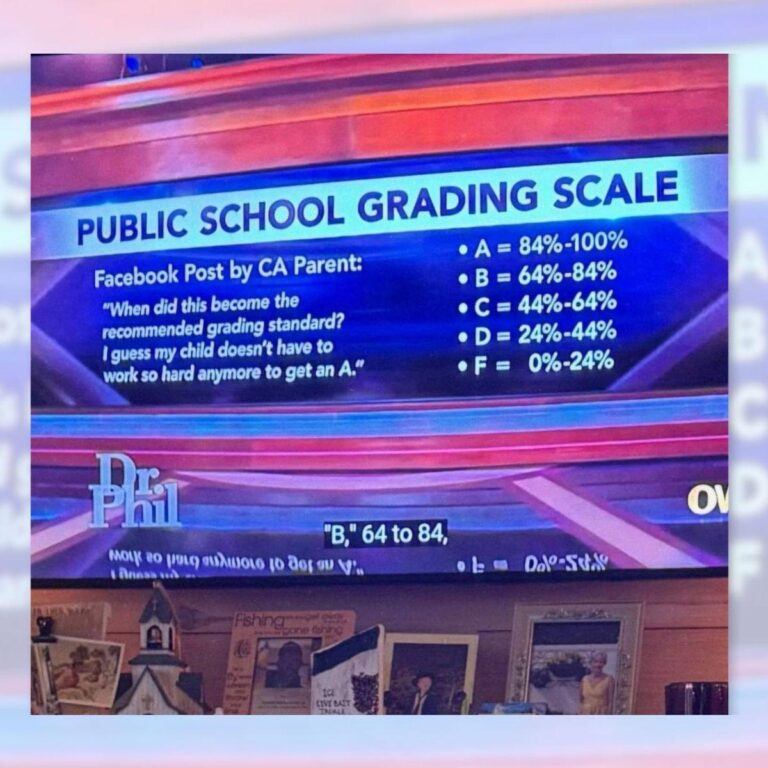San Diego school districts have announced a significant overhaul of their grading systems aimed at addressing systemic racism within educational evaluation. The move, highlighted in a recent Fox News report, reflects a growing trend among U.S. schools to reconsider traditional grading practices that critics argue disproportionately disadvantage students of color. This initiative seeks to create a more equitable academic environment by reexamining how student performance is assessed and reported, sparking a wider conversation about fairness and inclusion in public education.
San Diego School Districts Revamp Grading Policies to Address Racial Inequities
San Diego school districts have undertaken a comprehensive overhaul of their grading systems, aiming to dismantle longstanding racial biases that have disproportionately affected students of color. This move includes eliminating traditional disciplinary grading penalties and adopting more equitable assessment methods that emphasize student growth and mastery over punitive measures. District officials emphasize the importance of transparency and ongoing community involvement to ensure the new policies foster fairness and support all learners’ success.
- Elimination of zero grades for missing assignments, replaced with opportunities for make-up work.
- Shift from subjective behavior marks to objective academic evaluations.
- Increased professional development for educators to address implicit bias in grading.
- Regular data reviews to monitor impact on racial achievement gaps.
| Change Implemented | Intended Impact | Target Group |
|---|---|---|
| Removal of penalties for late submissions | Encourage timely completion without grade loss | All students, especially those impacted by systemic barriers |
| Use of standards-based grading | Focus on mastery of skills, not comparison to peers | Students in all demographic groups |
| Teacher training on cultural competency | Reduce grading bias and improve student-teacher rapport | Educators and students, particularly minority students |
Examining the Impact of Traditional Grading on Minority Students’ Academic Outcomes
Traditional grading systems have long been criticized for perpetuating disparities among minority students, often reflecting more about socioeconomic factors than actual learning. Research shows that these conventional methods can inadvertently amplify educational inequities by emphasizing punitive assessments over growth and understanding. Minority students frequently face systemic hurdles such as limited access to resources, implicit bias, and culturally irrelevant evaluation standards, which skew academic outcomes and hinder their potential to excel.
Key issues identified include:
- Grades disproportionately influenced by behavior and attendance rather than academic mastery
- Standardized testing biases that do not account for diverse cultural backgrounds
- Lower teacher expectations contributing to achievement gaps
- Unequal opportunities for feedback and academic support
| Impact Metric | Minority Students | Non-Minority Students |
|---|---|---|
| Average GPA | 2.7 | 3.4 |
| Failing Grades (%) | 18% | 7% |
| Graduation Rate | 76% | 89% |
Community Reactions and Expert Opinions on the New Grading Framework
Parents and local activists have expressed a mix of support and concern regarding the San Diego school districts’ new grading framework. Many commend the effort to address systemic biases within traditional grading methods, highlighting its potential to create a more equitable academic environment. One parent stated, ‚ÄúThis change acknowledges the diverse learning styles and backgrounds of our students, which is long overdue.‚ÄĚ However, some community members worry about the practical implications, fearing that the shift could lead to inconsistencies in assessment and affect college admissions.
Educational experts and equity advocates have weighed in with nuanced perspectives. Dr. Lisa Carrington, a professor of Education Policy, emphasizes that while the framework is a step forward, sustained training for teachers is crucial for effective implementation. She notes:
- Ongoing professional development to mitigate unconscious biases.
- Creation of transparent grading criteria aligned with inclusive standards.
- Regular monitoring to assess the impact on student outcomes across demographics.
| Expert | Opinion | Suggested Action |
|---|---|---|
| Dr. Lisa Carrington | Supports framework with teacher training | Implement workshops on bias awareness |
| Marcus Delgado | Advocates for transparency in grading | Publish grading rubrics publicly |
| Amira Johnson, Parent | Appreciates equity focus; concerned about college impact | Engage college counselors in transition planning |
Recommendations for Implementing Inclusive and Fair Assessment Practices in Schools
To ensure grading reforms achieve their goal of equity, schools should prioritize transparent criteria that clearly communicate expectations to students from diverse backgrounds. Assessment rubrics need to reflect varied learning styles and cultural contexts, allowing students to demonstrate mastery in multiple ways. Educators must receive ongoing professional development focused on implicit bias, cultural competence, and inclusive pedagogies to effectively implement these adjusted grading standards. Furthermore, actively involving families and community stakeholders in policy discussions fosters trust and supports student success across demographic lines.
Adopting differentiated assessment strategies can help address systemic disparities while maintaining rigorous academic standards. The following practices serve as a foundation for fair evaluation:
- Multiple assessment formats: Incorporate projects, presentations, and portfolios alongside traditional tests.
- Focus on growth: Emphasize progress and effort rather than sole reliance on final outcomes.
- Bias review committees: Regularly evaluate grading policies for inadvertent disadvantages.
| Practice | Impact |
|---|---|
| Flexible deadline policies | Account for different home environments and responsibilities |
| Anonymous grading techniques | Reduce subjectivity and bias during scoring |
| Culturally responsive content | Engage diverse learners and build relevance |
In Conclusion
As San Diego school districts move forward with their revamped grading policies, the initiative marks a significant step in addressing systemic inequities within education. While the changes aim to foster a more equitable academic environment, ongoing monitoring and community engagement will be essential to assess their impact and ensure that all students receive fair and unbiased evaluations. The coming months will reveal how these reforms shape student outcomes and set a precedent for other districts grappling with similar issues.







